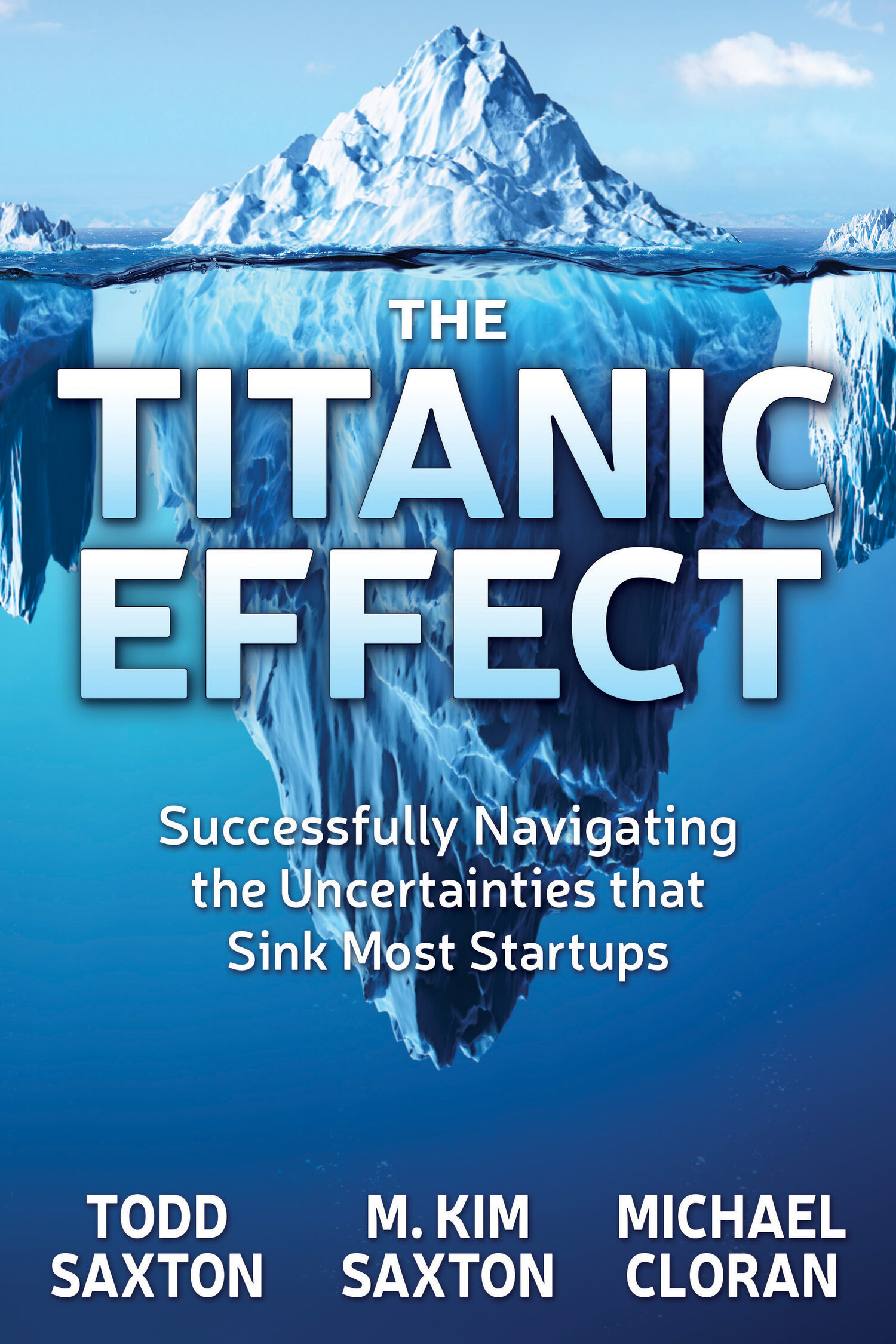Way--it really is! But first, another update on our journey. This week, the eBook version of The Titanic Effect: Successfully Navigating the Uncertainties that Sink Most Startups became available on Kindle. And yes, we purchased one on the first day.
We shared our origin story with you a few blogs ago. So, you have a sense of where and when we started. But, the remainder of our journey until now, as well as going forward, has many aspects that are just like a startup. After coming up with the idea of The Titanic Effect and presenting it, we believed we had:
Some worthwhile ideas (the seeds of a Product)
A possible Market based on the enthusiastic response of those entrepreneurs and investors who had seen the presentations
A Team including Michael Cloran @DeveloperTown, and Kim and Todd Saxton @KelleyIndy
But an idea and some possible readers do not a book make — just as a prototype and some possible customers do not a venture make. The next challenge was finding a publisher. Writing a book is kind of meaningless if you do not have someone to print and distribute it. We wanted this to be accessible to founders, investors, and startup supporters—not just students, which ruled out academic publishers. That still leaves several choices. First, there’s self-publishing, where you maintain all the intellectual property and have a clear and favorable decision-maker (you), but also have to do ALL the heavy lifting when it comes to marketing, sales, and distribution. Big publishing houses, at the other end of the spectrum, are very reluctant to take on first-time writers. I recall the conversation with one in particular: “Which one of you has 50,000 followers? Oh…well, call back when you do.” They also wanted to control all the design elements and would own the intellectual property; something we did not desire. We ended up with @MorganJames, a publisher based out of New York. It was a good fit from multiple perspectives:
It is an entrepreneurial shop with an innovative approach to publishing.
MJ allowed us to maintain control and ownership of the intellectual property—we were not sure how we might repurpose and extend the “franchise.”
MJ helped with the final design, production, and distribution, particularly to bookstores and other outlets (something we know little about).
Unfortunately, even with a product idea, a path to market, some possible customers, and a team, we still had a lot of work to do. Our next step was to move to validation—making sure that our value proposition was resonating with our target market segments, and particularly entrepreneurs. We did not want to write a book that would not be helpful. As we shared some early work, we got great feedback on the parts that were intuitive and helpful, as well as those that needed further or better explaining. Thanks to many here, but particularly Michael Hatfield, Jenni Burton (@jenni_burton), and Chris Hanahan for their feedback. One suggestion they had - “pivot” from only describing why some startups failed, to incorporating both successes and failures. With these changes and further feedback, we were comfortable that we had “product/market fit,” one of the more elusive but fundamental challenges every startup faces.
So, then we had to write the damn book. Taking some good ideas and concepts in an MVP (minimally viable product) presentation format and translating them to 250 pages of actual written words is a huge endeavor. Kim and Todd had a lot of experience writing academic articles and book chapters. Michael had a lot of experience writing code. But, bringing together three very different voices and writing styles into a hopefully coherent book was quite a task. Fortunately, we had Amanda Cross @CrosswiseConsulting to help mold our work into a readable and coherent form. We also had Stewart Moon @Moondesign and some help from @DeveloperTown to bring in the design elements we wanted to make a better reader experience.
Now we have a completed product ready to take to market - a big step in any startup’s evolution (we’ve navigated the Technical Ocean). The founding team has been able to supplement our capabilities with organizations like @MorganJames and people like Amanda, Stewart, and others (navigating the Human Ocean). Here comes the next source of uncertainty…the Marketing Ocean! There is a lot of competition in this space. Getting attention beyond our own network will be a different measure of success. But we have gotten the product to launch and learned a lot in the process. Thanks to all of you who inspired, encouraged, supported, and were patient with our lack of or slow response to emails, distracted demeanor, and seeming obsession at times with our own “startup baby.” You have all been a big part of our own entrepreneurial journey.
And, we are quite happy with how The Titanic Effect: Successfully Navigating the Uncertainties that Sink Most Startups looks on the Kindle. We hope you like it too.

